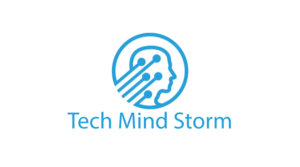Blockchain technology Upsc has significantly advanced across several industries, including education and business, thanks to its disruptive potential. A cutting-edge organization, Vignan’s Institute of Information Technology, is utilizing blockchain’s potential to transform educational paradigms. The influence of blockchain also extends outside of academia, having an impact on industries like UPSC preparation and industrial behemoths like DXC Technology Noida.
Blockchain technology Upsc has become a revolutionary force in the ever changing, technologically advanced world of today. Because it is secure and decentralized, it is a great contender to overthrow established systems. This article examines how blockchain technology is being used at Vignan’s Institute of Information Technology, how it relates to UPSC preparation, how important it is to the Hindi-speaking community, and how it is being used at DXC Technology Noida.
Vignan’s Institute of Information Technology’s blockchain program
The Vignan’s Institute of Information Technology is aware of how blockchain technology Upsc has the potential to transform education. This technology has been adopted by the institution to improve the legitimacy and openness of its academic procedures. The institution guarantees the immutability of academic records through blockchain, making them tamper-proof and verifiable. Employers’ verification procedures are made easier, and the credentials of the students are protected from any fraudulent activity.
Myopencontents | DestroyErr | GateWeaver | HostingPerTutti | Digitalsplaces
The use of blockchain also includes the issuance of certifications. By securely storing certificates on the blockchain, students who successfully complete courses can do away with the security concerns with paper certificates. This invention accelerates hiring and lowers administrative costs while streamlining the verification process for enterprises.
Using Blockchain Technology to Prepare for the UPSC
In India, the Union Public Service Commission (UPSC) examination is a prestigious and fiercely competitive test. Even in this area, blockchain technology has become relevant. The secure and open nature of the technology is used to establish a strong environment for UPSC aspirants.
From the submission of the application form to the document verification, blockchain secures the integrity of the entire process. This reduces the possibility of fraudulent actions, improves the validity of the exam, and upholds the integrity of the selection procedure. Aspirants can safely pursue their objectives in the knowledge that their efforts will be impartially and fairly evaluated.
Blockchain: Cutting Through the Language Divide
Blockchain technology has an impact outside of English-speaking countries. It has a tremendous amount of potential, even among Hindi speakers. The use of blockchain technology in Hindi has the potential to significantly improve accessibility and inclusion.
A bigger audience can understand blockchain technology’s fundamentals by breaking down language barriers by offering information about it in Hindi. This opens the door for broad adoption and involvement in industries that can benefit from blockchain technology Upsc. Such programs strike a chord in a nation like India that has a wide variety of languages and places a high value on vernacular languages.
A Look Into the Future with DXC Technology Noida
The revolutionary allure of blockchain does not spare the business world. A international company that offers comprehensive IT services, DXC Technology, has a presence in Noida. The business is looking into how blockchain technology Upsc could improve its processes and offerings.
The decentralized architecture of blockchain can increase the security and openness of DXC Technology’s data management systems. Blockchain can transform processes in a number of industries, including supply chain management, data sharing, and cybersecurity. DXC Technology Noida plans to use blockchain to remain at the forefront of innovation and give its clients greater value.
Conclusion
blockchain technology has an impact on business operations, exam preparation, inclusive language use, and education. By safeguarding the confidentiality of academic records and streamlining certification procedures, Vignan’s Institute of Information Technology serves as an example of how blockchain integration in education might be done. The transparent environment of blockchain improves the UPSC arena, guaranteeing impartiality throughout the selection process.
Additionally, the use of blockchain in Hindi creates new opportunities for comprehension and application across various groups. Finally, DXC Technology’s foray into blockchain demonstrates its dedication to remaining secure and competitive in a constantly changing digital market.
The world may look forward to a future where innovation, security, and transparency come together to redefine accepted standards as these industries continue to leverage the potential of blockchain technology Upsc.

